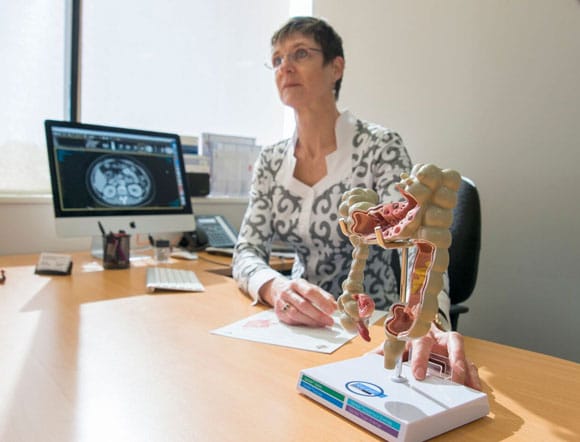What is faecal incontinence?
Faecal incontinence is the inability to control bowel movements.
Around 5% of people report having faecal incontinence. But the real number may be much higher, because people are often too embarrassed to talk about it.
The experience of faecal incontinence varies from person to person. You may experience:
- involuntary passing of wind or liquid stool (minor incontinence)
- involuntary passing of solid stool (major incontinence)
- a sudden need to go to the toilet and be unable to reach a toilet on time
- no sensation of needing to go to the toilet before soiling yourself
- slight soiling when passing wind.
Some people experience faecal incontinence daily. For others, it happens occasionally.
Faecal incontinence can be distressing and embarrassing. But it’s a very treatable condition, with cure possible for many people.

What causes faecal incontinence?
Faecal incontinence is a symptom of an underlying problem or medical condition. Sometimes more than one problem is involved.
Damage to anal sphincters
The internal and external anal sphincters are the muscles located at the end of your digestive tract. They prevent the release of stool until you are ready to go.
Any damage to or loss of control over these sphincters can lead to incontinence. The most common causes of damage are childbirth and anal surgery.
Neurologic causes
Conditions such as diabetes, multiple sclerosis and spinal cord injury can affect the nerves to the bowel. They can decrease sensation and control of the anal sphincters. Nerve damage during vaginal childbirth can also decrease anal sphincter function.
Decreased capacity of the rectum
If the rectum loses its ability to expand and store stool, stool may be forced to leak out.
Conditions such as inflammatory bowel disease (e.g. Crohn’s disease, ulcerative colitis) and radiation treatment complications can decrease rectal capacity.
Faecal impaction
Hard stool accumulating in the rectum can cause the anal sphincters to relax and allow liquid stool to escape around the blockage.
Faecal impaction is a common cause of incontinence in older people.
Diarrhoea
Any cause of diarrhoea (e.g. IBS, acute gastroenteritis) can lead to loss of liquid stool.
Unknown causes
Sometimes there is no obvious cause for faecal incontinence. This is called idiopathic incontinence. It occurs most commonly occurs in middle-aged and older women.
How is the cause of faecal incontinence diagnosed?
The underlying cause of your faecal incontinence can usually be identified from:
- your medical history
- a physical examination
- diagnostic tests (e.g. colonoscopy, anorectal manometry, ultrasound or MRI, faecal testing).
How is faecal incontinence treated?
The best type of treatment depends on the cause of your faecal incontinence and how severe it is. Options include:
- lifestyle and dietary changes – to relieve constipation or diarrhoea
- muscle retraining programs (called biofeedback)
- nerve or muscle stimulation (e.g. sacral neuromodulation)
- medication – to control diarrhoea and constipation
- surgery – such as repairing sphincter tears or even transferring muscles from other areas to the anal canal.
Your faecal incontinence specialist can help you find the best treatment. Even when a cure isn’t possible, you can often get effective relief from symptoms.
